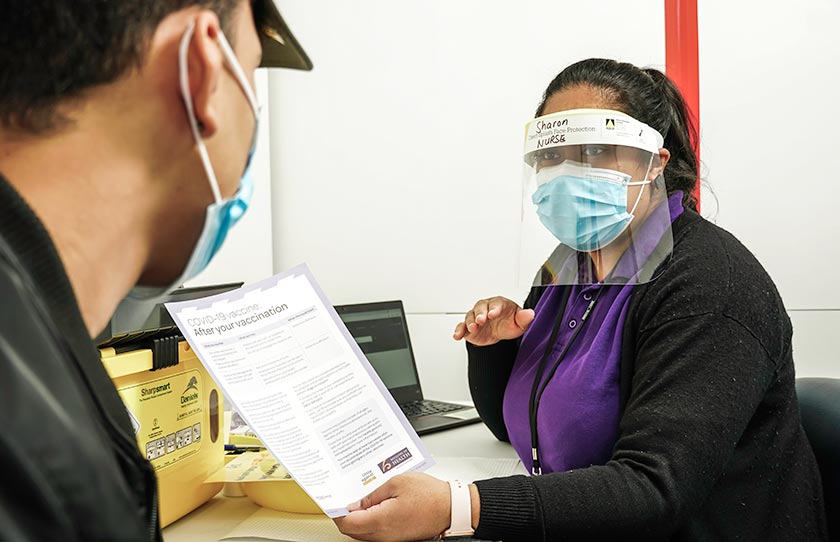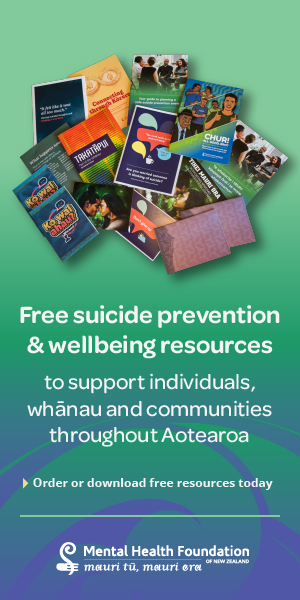Almost all registered health professionals under the Health Practitioners Competence Assurance Act (2003) must have their first dose of the Pfizer vaccine by November 15, along with non-regulated workers across the sector, from aged and community care to kaupapa Māori and Pacific providers.
For those working in prisons, the deadlines are earlier – November 6 for the first dose, and December 8 for the second.
A compulsory vaccination order simply means it has been deemed essential for particular roles – not that a person can be forcibly vaccinated.
NZNO supports this approach,1 as does the Nursing Council.2 Most health workers are already vaccinated and this order will provide reassurance and certainty to health-care workers, patients and the vulnerable in our communities.
Failing to follow the order could result in disciplinary proceedings.
The Nursing Council states: Complying with relevant legislation is part of both the Council’s code of conduct, and the competencies for each scope of practice. Failing to observe this order if it applies to you may therefore be grounds for a formal complaint, and lead to disciplinary proceedings under the Health Practitioners Competence Assurance Act 2003.3
Exemptions
The new requirement is likely to be along similar lines to the current vaccination order for border workers, including health-care workers in MIQ facilities.4 That provides an exemption for those with a medical reason documented in writing by a health practitioner (including nurse practitioners but not registered or enrolled nurses) who has examined them. However, those who cannot have the Pfizer vaccine for medical reasons may be able to have another COVID-19 vaccination when they become available.
Employers cannot discriminate against a worker because of a disability. There is protection under the Human Rights Act (1993) on that basis. An inability to be vaccinated for medical reasons could be seen to be a disability. However, there are limits on an employer’s obligation to make special accommodation for an employee’s disability.
Some employees may have religious reasons for not wanting to be vaccinated. There is protection under the Human Rights Act from discrimination over religious belief. Objective and verifiable proof of that religious belief, and how it prevents you being vaccinated, would likely have to be provided.
An employer would have to make reasonable accommodation for a person who refused vaccination for this reason. However, if there was no reasonable availability of redeployment or if an employee intended to advise others not to be vaccinated because of their personal religious belief, continued employment may not be possible.
Bill of Rights Act
The New Zealand Bill of Rights Act (1990) also provides certain rights to us all, including the right to refuse to undergo medical treatment. A COVID-19 vaccine is a medical treatment. The right to refuse medical treatment, at its most literal, means you cannot be treated against your will. Such a right does not mean that you could not be moved to another area of work or justifiably dismissed, in certain circumstances, if you decline to be vaccinated.
It is important to know that Parliament can pass legislation that limits some of the rights granted under the Bill of Rights Act, so long as that limitation is reasonable and can be demonstrably justified in a free and democratic society.
There is a legal argument saying that a vaccination order could be a reasonable limitation that is demonstrably justified in the circumstances of the global pandemic and the interests of public health. NZNO considers that argument to be a relatively strong one. However, our courts have not yet made a decision on whether the COVID-19 vaccination order is a reasonable limitation.
So far there has only been one case in Aotearoa, New Zealand, of a worker being dismissed for failing to be vaccinated without a medical exemption. That employee was a maritime border worker and did not tell her employer why she would not be vaccinated. She took her case to the Employment Relations Authority, which found she was not unjustifiably dismissed.
Employer vs employee rights
An employer can ask you if you are vaccinated against COVID-19, as a part of carrying out a risk assessment and risk management programme, or their responsibility to ensure their workforce is vaccinated. If you decide to answer, your answer must be accurate.
Employees have the right not to disclose their vaccination status. However, the employer can assume the worker is unvaccinated and take measures to mitigate risks for that employee and others.
Generally, employers are not entitled to access information from your health records, including the COVID-19 immunisation register, without your specific consent. However, since the 2021 Delta outbreak, the Ministry of Health has given permission to some district health boards to get vaccination status information directly from the register. That is likely to continue to be the case once the mandatory health workforce vaccination order comes into force.
Can I be dismissed if I am unvaccinated?
NZNO considers that all health employees who do not get vaccinated, and are not exempt for medical reasons, potentially run the risk of losing their jobs.
The risk is even greater for workers specified under the mandatory vaccination order/s.
NZNO will work with employers and affected workers to ensure that those who cannot be vaccinated because of a verified health exemption, or choose not to be vaccinated for other reasons, are offered reasonable information about vaccination and their options.
We will work to ensure you are offered redeployment opportunities, if possible, to roles that have not been identified as vaccine-essential. That could include a change of your role, hours of work, or location.
However, it may be that if employees decline vaccination, and cannot be redeployed, employment in the existing role or with that employer is no longer possible or appropriate.
Each case will need to be assessed on its own facts in deciding whether there are viable options to remain employed or whether termination of employment could be justifiable.
Reasonable process
In addition, employers must still undertake a reasonable process when engaging with unvaccinated employees, encouraging those employees to be vaccinated, and when deciding on what consequences may flow from an employee not being vaccinated.
Employers must always be able to justify a dismissal, act fairly and reasonably and conduct any process in good faith.
A dismissal for a failure or refusal to be vaccinated is not necessarily an “at fault” dismissal because the requirements of the role have changed.
Therefore, disciplinary meetings, warnings and other similar processes may not be appropriate. Meetings to discuss the issues for individual workers, with their union’s support, and employers clearly setting their requirements with reasonable timeframes are likely to be part of a fair process.
However, NZNO strongly encourages you to be vaccinated if you can.
Story updated since print issue.
References
- New Zealand Nurses Organisation. (2021). COVID-19 (mate korona) Vaccinations. (Position Statement) (PDF 270 KB).
- Te Kaunihera Tapuhi o Aotearoa Nursing Council of New Zealand. (2021). Guidance statement: COVID-19 vaccine and your professional responsibility.
- Te Kaunihera Tapuhi o Aotearoa Nursing Council of New Zealand. (2021). Mandatory vaccination order for nurses.
- COVID-19 Public Health Response (Vaccinations) Order 2021.




